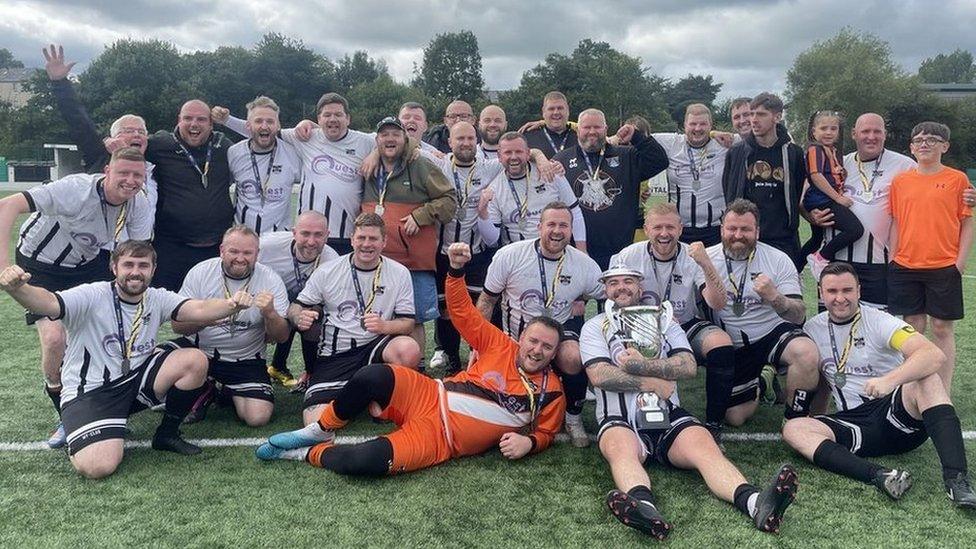The people 'prescribed' golf for their health
- Published
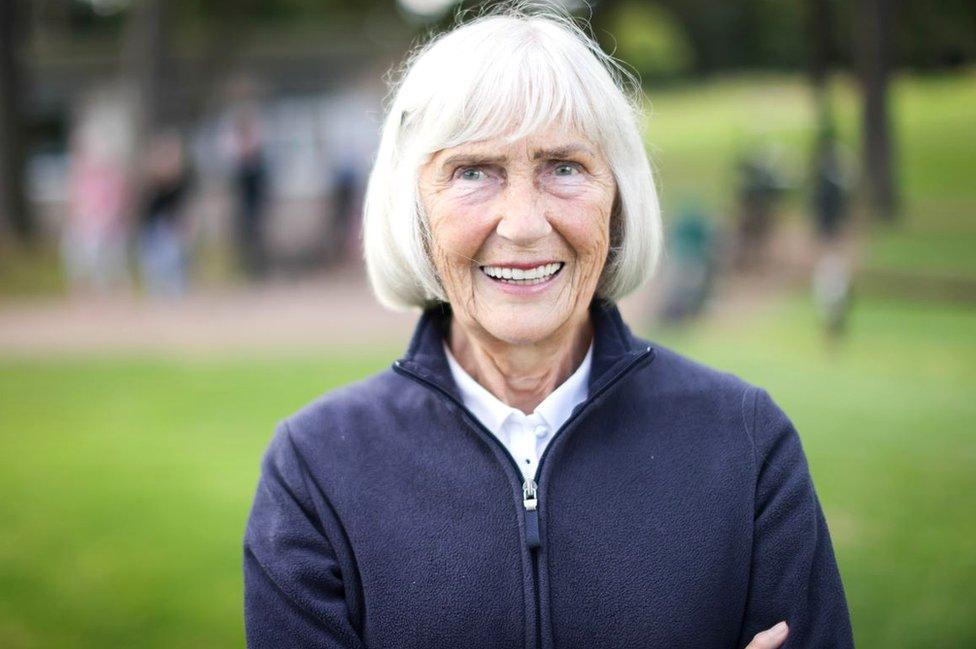
Linda McTavish had never picked up a golf club until she was referred to the pilot project
People who were "prescribed" golf as a treatment for health conditions say the pilot scheme has been a success.
A pioneering health pilot in Fife which saw participants referred to golf sessions has completed its first phase.
Academics are now analysing the evidence so far, looking at how it might be scaled up in Scotland and elsewhere.
But the first participants on the fairway told BBC Scotland News the scheme hit a hole-in-one.
"I just grabbed the opportunity and it's been great," said Linda McTavish.
The 77-year-old from Saline in Fife had never played golf before she was told about the pilot project at a class for her COPD.
For her it has proved a success.
"I enjoyed the company and the exercise and fresh air - I love meeting other people," she added.
The Golf for Health pilot saw the University of St Andrews School of Medicine and golfing organisation The R&A collaborate with other bodies to develop the model.
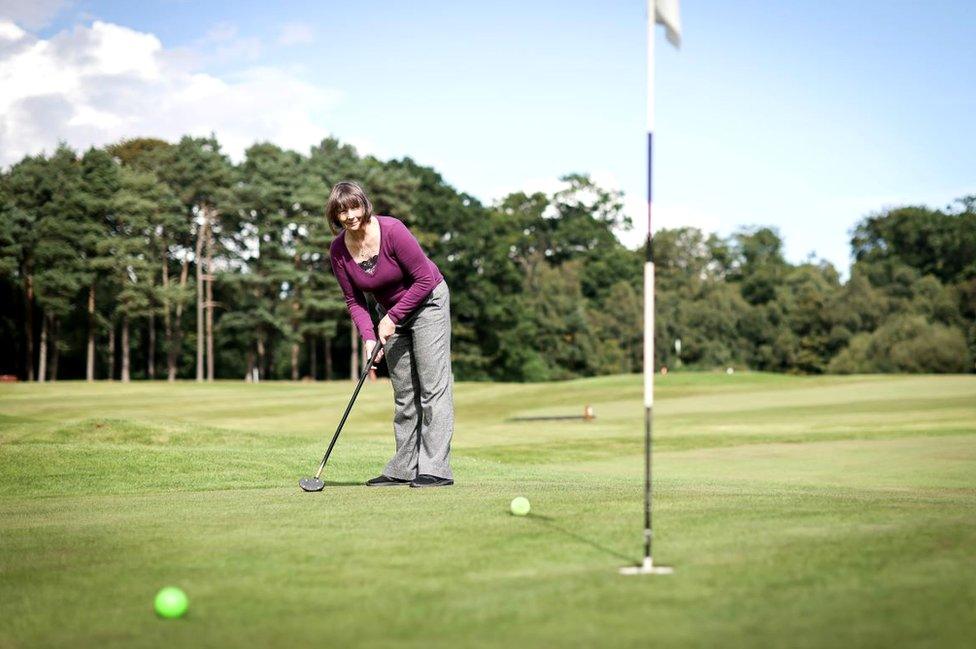
Experts are analysing the results of the first golf for health pilot and are hoping it could be taken up across the country
Four local golf clubs took part offering a six to eight week free programme.
People were able to access it in a variety of ways including via their GP or other health professionals.
Others who took part were not new to golf, like 72-year-old Gordon Baker from Rosyth. He used to play golf but gave it up about six years ago.
"I'm sort of coming back in and starting from scratch again," he said.
The coaching on the programme has allowed him to take it up again, but with adjustments in things like the way he holds the clubs to take account of a bit of arthritis.
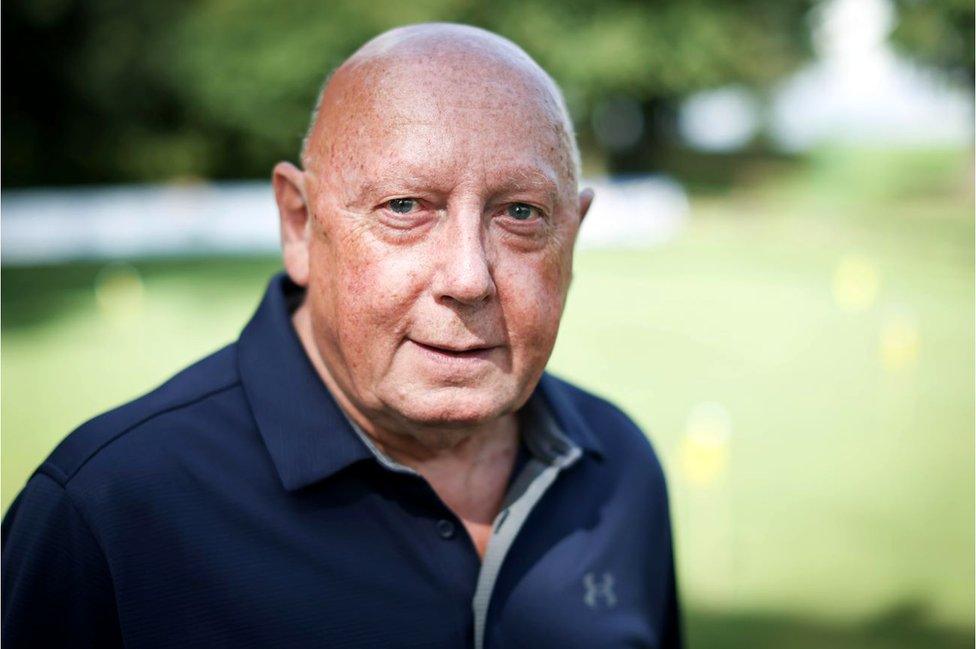
The golf sessions have allowed Gordon Baker to take up golf again, with adjustments to counter his arthritis
He added: "I'm finding that it is actually benefitting my health and I'm making a lot of good friends and a bit of company - it all helps."
The R&A has been working for some years to raise awareness about the physical, mental and social health benefits of golf, external.
A Scandinavian study, for instance, suggests that, on average, golfers live five years longer than non-golfers.
"From our perspective it was showing that we could create a referral process that works," says Kevin Barker, director of golf development at The R&A.
"We can take this pilot and make it sustainable and scalable and take it to other parts, whether that's in Scotland, Great Britain and Ireland or around the world."
A total of 60 people have been through the pilot programmes and work is now underway to analyse why people came, why they stuck with it and what problems there might have been.
There will then be an assessment of the feasibility of a larger-scale rollout across Scotland and the UK.
"Often health professionals seeing people will think, what can we do apart from medication to let people take their care into their own hands," said Frank Sullivan, director of research at the University of St Andrews medical school.
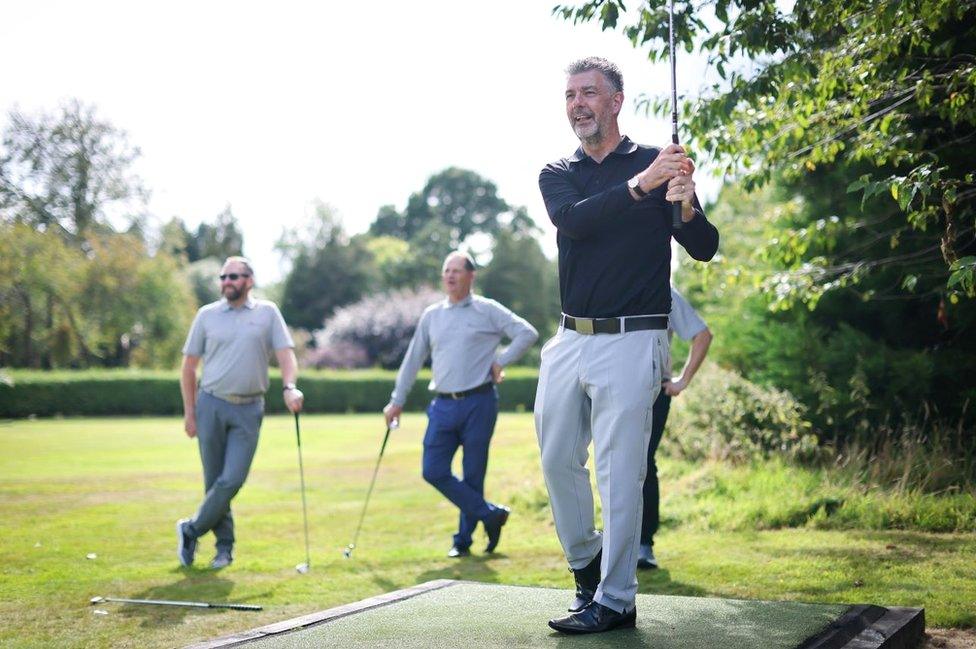
The pilot project ended with an event at Dunnikier Park Golf Club in Kirkcaldy
Prof Sullivan thinks the potential of all of this for individuals at least, could be big.
For some the pilot project has already had lasting effects.
Linda and Gordon first met as part of the golf group and are among those still playing together even after their participation in the project ended.
Related topics
- Published31 August 2023
